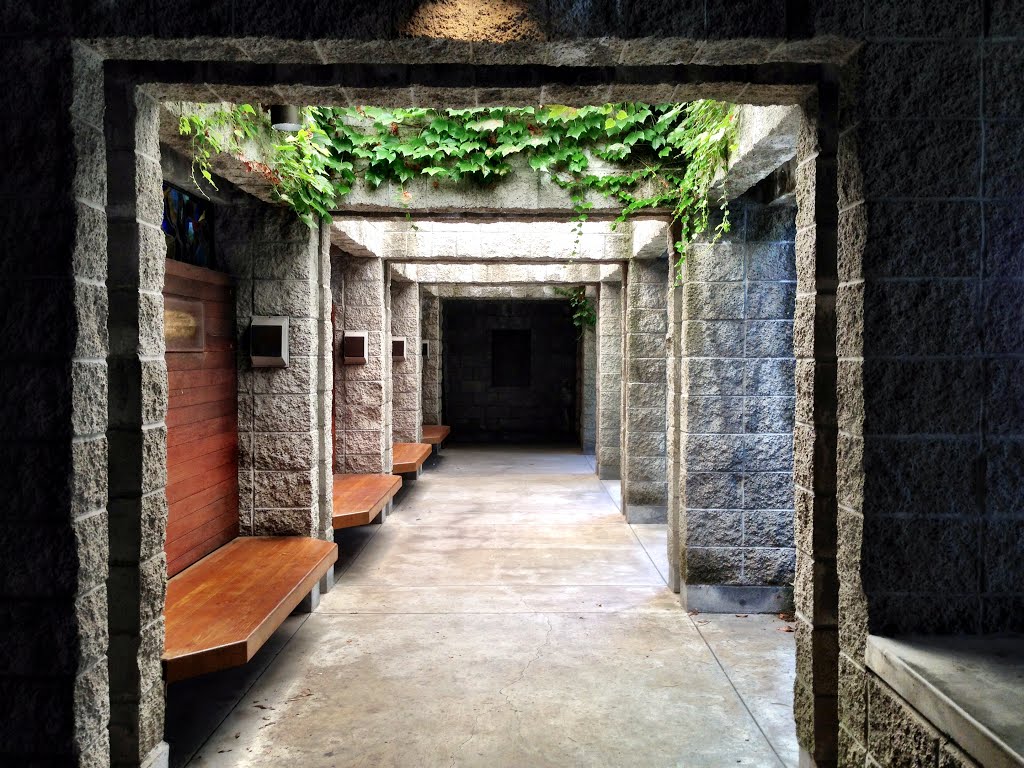Poetry and Culture Care featuring Dana Gioia
“Poetry is our most concise, expressive, and memorable way of using words to describe our existence. Beauty is one of the ways we look into the heart of existence and see the order of the universe, the order of our lives. Which means that beauty is truth. What art has the power to do is to awaken us to the fullness of our humanity.”
+ Dana Gioia, Poet Laureate of California, recited poetry and discussed its role in shaping culture at “Culture Care and Poetry,” an event sponsored by the Brehm Center for Worship, Theology, and the Arts. He read from his most recent book 99 Poems: New and Selected and reflected with Brehm Center Director Mako Fujimura on what he learned while leading the National Endowment for the Arts. Watch the whole event below or listen to the audio at the bottom of this page.
Poetry from the Fuller Community
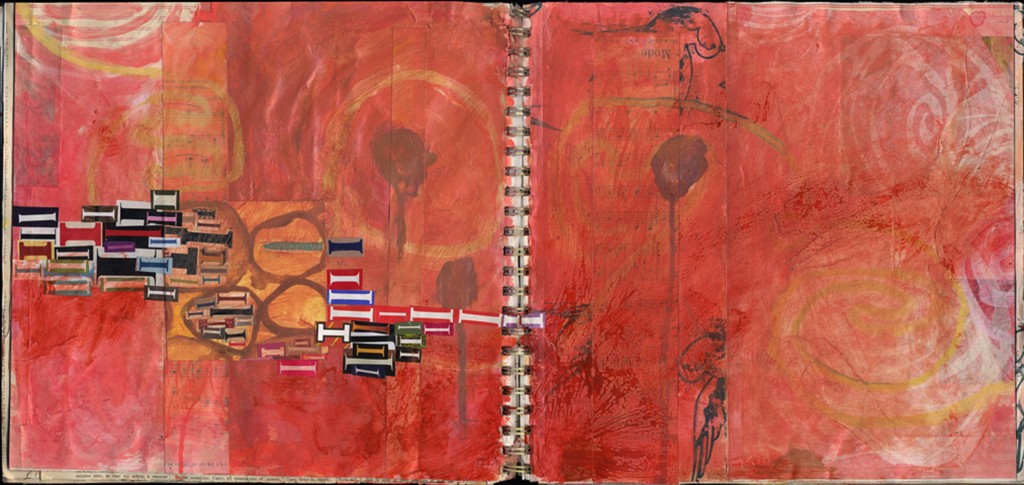
+ Untitled by Maria Fee [PhD student], originally curated for Fuller’s student weekly, the SEMI, May 2014. Her work was printed in the first issue of FULLER magazine.
A Better Country
We left a world two thousand miles behind
and crossed wide Arizona on the 10
to reach some undisclosed horizon line
the forests and the rivers I called mine
have faded into scrub and barbed wire fence
we left a world two thousand miles behind
and who can say if this was by design?
we heard a voice say go and so we went
to reach some undisclosed horizon line
still, in our hearts there sits a little shrine—
above the door, it reads, what might have been
we left a world two thousand miles behind
what greater sorrow, though, if we resign
ourselves to saying no and not amen—
amen to undisclosed horizon lines
how often do our hopes and fears entwine!
two roads of one same journey in the end
we left a world two thousand miles behind
to reach some undisclosed horizon line
+ By Kyle Oesch [MAT ’16], this poem was printed in the first issue of FULLER magazine.
From a Crazy City Girl to a Mad Farmer
I know nothing of trees.
Of tending the land
Or of the feel of soil between my fingers.
But if you teach me how to plant,
Maybe I, too, will learn to grow.
I know nothing of stillness.
Of taking unconditional breaths of unconditioned air,
Or the sounds of rivers rushing.
But if you teach me silence
Maybe I can make some sense of the noise.
I know too much of violence.
Am all too familiar with what it means to defend one’s own.
But if you teach me what I am fighting for,
Maybe I can put down the sword.
If you remind me of the paths beneath these roads or the land beyond these buildings
Maybe I can re-imagine what abundance really looks like.
So never stop telling the stories of the land
Or inviting others into that beautiful silence
Because if you teach them life
Maybe they, too, can practice resurrection.
+ This poem by Tamisha Tyler [MDiv ’14] was written for “A Wendell Berry Reading,” an event hosted by Fuller’s sustainability student group and featuring professor Tommy Givens. See more on the theme of silence in Voices on Stillness.
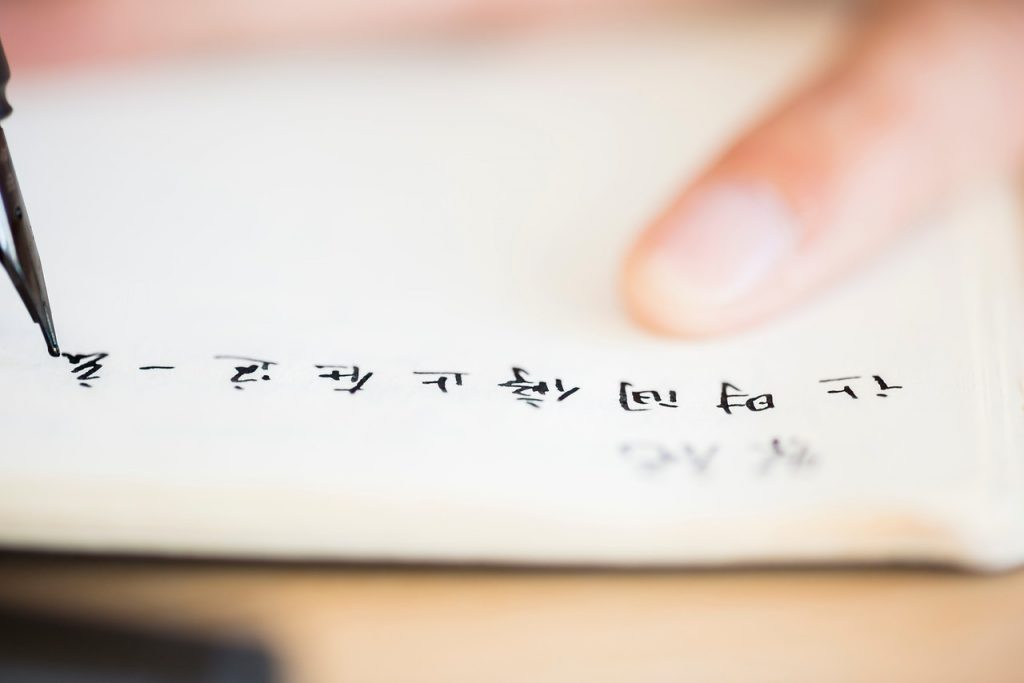
Kun-Ming Lake
Sky overflows the world
in pale blue watercolor,
daubing the ground by chatting reeds
a quiet thick willow
sea-foamed still water
This bank belongs to my eyes.
Wind overflows another world
which belongs to my skin, hair, and eyelashes.
My heart:
overflowing with one name.
西堤
天空占据世界的十分之九,
均匀的浅蓝水彩。
剩下的是摇曳群居的芦苇,
年迈而刚健的垂柳,
水:结出海浪的湖。
它们属于我的眼睛。
风占据另一个世界,
属于皮肤,头发和睫毛。
至于我的心,
里面只写满一个名字。
+ Gabriel Qi is a poet, counselor, and PhD student in the School of Psychology. Read his story of coming to faith through literature here.
Waiting
I want to tell the flowers that bloom and surely fade,
That though just slightly longer, our lives look much the same.
I want to tell the ocean that our salty tears are identical,
And when they flow, they pour. To stop them? Impossible.
I want to tell the earth, I stand in solidarity with its pain,
Waiting for our Redeemer to come, to come again.
I want to tell the trees that live before we cut them down,
Our lives were equally undervalued while rooted in this town.
I want to tell Mike Brown, you’re not guilty for your death,
Or free Eric Garner, and say, “Take your deep breath.”
I want to tell Trayvon Martin to eat a rainbow full of Skittles,
Or cry with John Crawford for there was very little
He could have done to protect himself
While holding a toy gun, standing in innocence at a toy shelf.
I want to tell their weeping mothers that hope will make them stronger.
And tell their angry fathers that their waiting is only a little longer.
I want to tell America that the system was always broken.
I want to tell these institutions, I will no longer be your token.
I want tell the mountains that quake and vomit for release
That I share your gut-wrenching longing and desperation for peace.
I want to tell the church that this pain runs too deep,
Yet the pain is ours while we wait, to share, to keep.
As God keeps us near the cross, filled with suffering and hope,
As love invites us to live, while fear whispers, “just cope.”
I beg you, wait in the gift of the present and pray for days of justice to come,
When we’ll have no more need for trials, when God’s loving will is done.
But for now, I need to tell the sand that we are both worn down rocks;
And since the clock never stops to give us room to catch up,
We fade into the whispers of time, blown into chaos by the wind,
Hoping for our Redeemer to come, to come again.
I want to tell our brothers who lost their wives this year,
That as you long to see her, God sees your every tear.
I want to tell our students who struggle with their call,
Be present where you are, and try to give your all.
Where you want to be, is not where you need to be,
And where you need to be is here.
So unwrap your thoughts and lift them out of unnecessary fear.
You’ll miss living when your mind is too busy trying to define
A purpose for your life three years or even three months down the line.
I want to tell all Fuller, “Yeah, sometimes it’s hard to wait.”
But, Christ promises to be with us forever and always.
So we must wait like the earth through clarity, confusion, wholeness, and pain,
Hoping for our Redeemer to come, to come again.
+ This poem by Jeanelle Austin [MDiv ’13], director of operations for the Pannell Center, was delivered in chapel on the Pasadena campus as an expression of lament. Read more on lament in “Voices on Loss,” and hear more from Jeanelle at the Story Table event on “Reconciling Race” available here.
“There by the Mississippi, by the waters of Huck and Jim—there we sat down and wept when we remembered Michael Brown, and all the others. On the stop signs and lampposts, on all the parking meters—there we hung up our hearts. For there our captors taunted us, and our tormentors shoved their weapons in our guts and in our faces, telling us to keep the peace; be respectful; sing a hymn! But how could we sing here and now in what has become for us—in what has always been for us—a foreign land?”
+ from “Psalm 137 for Israel in Ferguson,” a contextual translation of the Psalm written by Richard Erickson, associate professor of New Testament for Fuller Online and Fuller Northwest. Find more resources on the Psalms here.
Reflections on Language and Faith
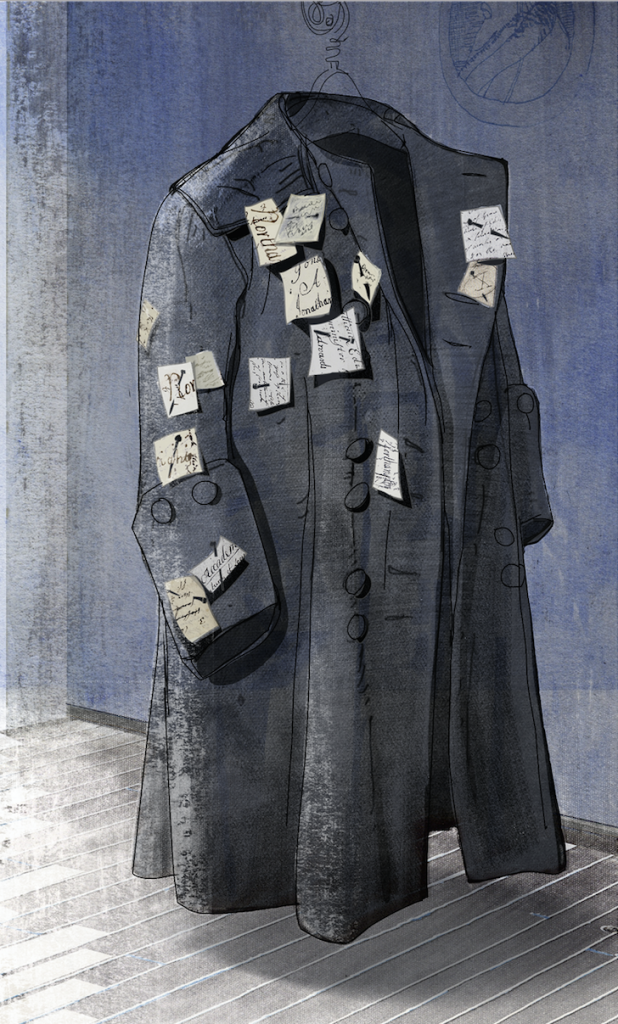
“Poets, artists, and creative catalysts . . . [provide] reminders of beauty that present justice in words, images, and songs that draw us in and captivate our attention until their truth can reach our hearts and transform our communities. Culture Care is the logical extension of nonviolent resistance to injustice.”
+ from Mako Fujimura in his book Culture Care (2015). You can download a chapter from his book here.
“God himself chose poets, philosophers, dramatists, musicians, and prophets to pen the Holy Scriptures. He called upon storytellers to articulate the mysteries beyond reason, called upon artists to design and build the temple that would hold his presence. Maybe it’s possible to know God without art but we wouldn’t. King David sang when he was too vile to pray. In dialogue with the suffering Job, God spoke in poetry.”
+ Lauralee Farrer, Chief Creative of Fuller, from her essay “The Artist as Intercessor,” available here.
“One of the hardest things for a Christian artist is to feel boxed in by language, and because of that they feel like they only have a limited palette that they can experiment with, a limited canvas that they can paint with, or a limited language to speak with. Beauty transcends a lot of the walls that we create with our language.”
+ David Gungor, worship leader and founder of The Brilliance, reflecting on the language of Christian worship. Watch more from David and other artists at “Voices on Culture Care.”
“The Christian life of faith is not simply an event, or an illumination, it is a growing up into Christ in all things (Eph 4:14–15), through the historical exigencies that a person necessarily encounters. It is a breaking through to a larger shared knowledge about things lived out and not simply observed. Essential to this process, however, are moments of delight and beauty that, as Bonaventure put it, are movements of the soul toward God.”
+ Bill Dyrness, professor of theology and culture, in his essay “A Poetic Theology: What Can Beauty Do For Us?” available here.
“Poetry forces us to slow down in order to listen and to see God at work. It reminds us that we need a lot more silence and stillness in our lives than we often realize. It reminds us that sanctification takes time, that people take time, that nature takes its God-ordained time to accomplish its divine purpose.”
+ David Taylor, professor of theology and culture, from his worship, theology, and the arts class. Learn more about the poetry of the Psalms here.
“If we were to read poems as regularly as we read advertisements and memos and newspapers, perhaps our language would be more redeemed, more useful. Eugene Peterson encourages us to use the poetry of the psalms for prayer—to enter into them, mumble them, imagine them, sense them, let our perceptions of God and good, of creation and covenant, of fraud and faith be transformed as we pray.”
+ Mark Lau Branson, Homer L. Goddard Professor of the Ministry of the Laity, in his essay on Eugene Peterson’s writing, the Psalms, and ministry. Read more here.
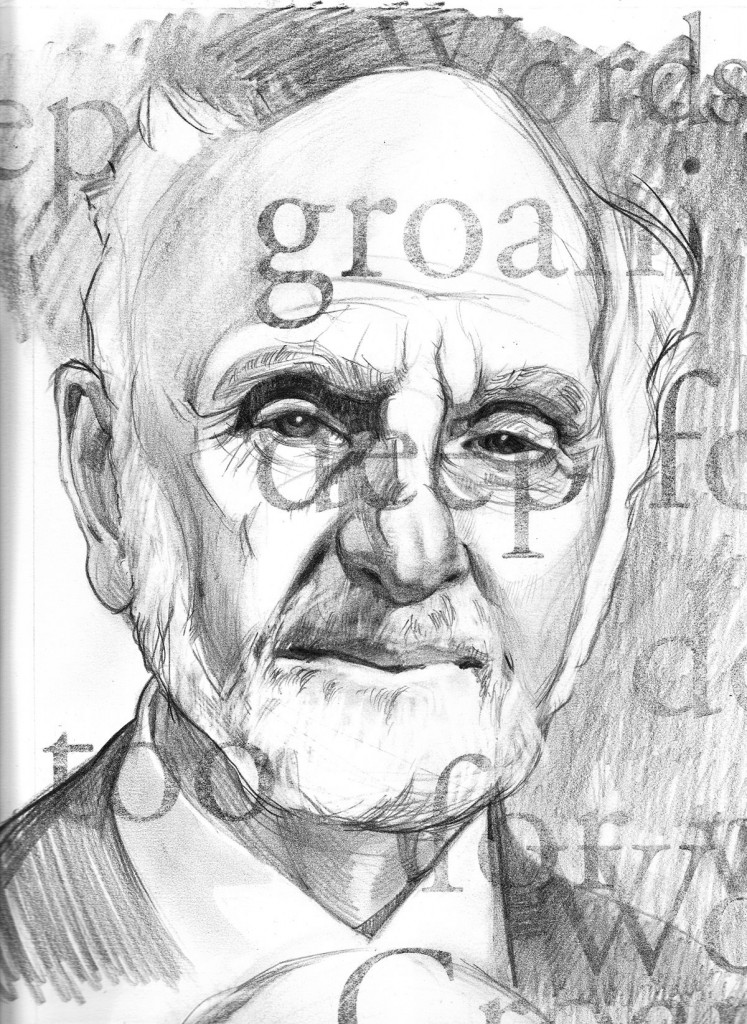 “The evocation of an alternative reality consists at least in part in the battle for language and the legitimization of a new rhetoric. The language of the empire is surely the language of managed reality, of production and schedule and market. But that language will never permit or cause freedom because there is no newness in it. Doxology is the ultimate challenge to the language of managed reality, and it alone is the universe of discourse in which energy is possible.”
“The evocation of an alternative reality consists at least in part in the battle for language and the legitimization of a new rhetoric. The language of the empire is surely the language of managed reality, of production and schedule and market. But that language will never permit or cause freedom because there is no newness in it. Doxology is the ultimate challenge to the language of managed reality, and it alone is the universe of discourse in which energy is possible.”
+ Walter Brueggemann, discussing the way prophetic texts spoken through poetry can speak against ideologies of empire, from his book The Prophetic Imagination. Dr. Brueggemann was the keynote speaker at the 2015 Fuller Forum, and you can hear his lectures here.
“To speak words is one thing; to sing the same words is another level of communication, and to add instrumentation to our singing deepens our communication still. God has provided for us a tremendous gift in our abilities to communicate profoundly to one another our hopes, fears, dreams, feelings, and beliefs. In many ways it is this that makes us fully human: our ability to incarnate the abstractions of our minds and hearts for others to encounter.”
+ Todd Johnson, Brehm Associate Professor of Worship, Theology, and the Arts, from his essay “Too Deep For Words.” Read his reflections on worship, theology, and the arts here.
+ Listen above to Dana Gioia, Poet Laureate of California, recite poetry and discuss its role in shaping culture at “Culture Care and Poetry,” an event sponsored by the Brehm Center for Worship, Theology, and the Arts.
Learn more about the Brehm Center’s next Culture Care Summit, “Creating Beauty in Exile,” coming February 2017 and including speakers Philip Yancey, Dianne Collard, and American Book Award-winner Shann Ray

